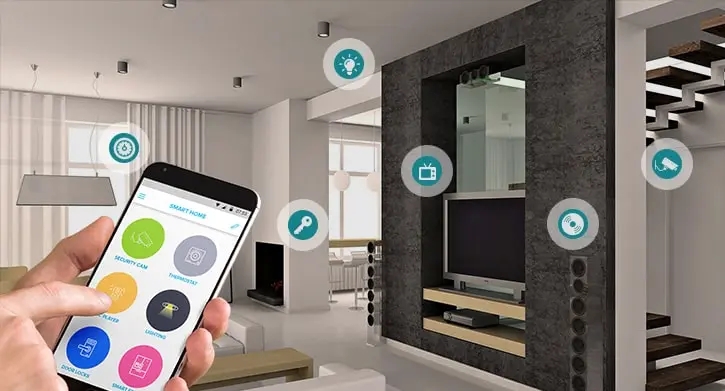Smart house technology has revolutionized the way we interact with our homes, transforming them into intelligent and efficient spaces. By integrating technology into everyday living, these systems offer a range of benefits, from increased convenience to enhanced security.
Understanding Smart House Technology
Smart house technology refers to the integration of various electronic devices and systems within a home that can be controlled remotely, often through a smartphone app or voice commands. This technology allows for seamless communication and coordination between different devices, creating a truly connected living environment.
Key Components of Smart House Technology
- Smart Home Hubs: These central devices act as the brains of the smart home system, connecting and controlling various devices.
- Smart Home Apps: These mobile applications provide a user-friendly interface for monitoring and controlling smart home devices.
- Smart Home Speakers: Voice-activated speakers enable hands-free control of smart home devices through voice commands.
- Smart Home Sensors: These sensors detect various environmental factors, such as temperature, humidity, and motion, and can trigger automated responses.
Benefits of Smart House Technology
- Increased Convenience: Smart house technology simplifies daily tasks, such as adjusting the thermostat, turning on lights, and locking doors, all with the touch of a button or a voice command.
- Enhanced Security: Smart security systems provide peace of mind by monitoring your home 24/7. They often include features like video doorbells, security cameras, and motion sensors that can alert you to any suspicious activity.
- Energy Efficiency: Smart thermostats and lighting systems can help reduce energy consumption and lower utility bills by optimizing energy usage based on occupancy and preferences.
- Improved Accessibility: Smart house technology can make life easier for people with disabilities by automating tasks and providing voice control.
- Personalized Comfort: Smart homes can be customized to individual preferences, creating a comfortable and personalized living environment.
The Role of Artificial Intelligence in Smart House
Artificial intelligence (AI) is playing an increasingly important role in the development of smart house technology. AI-powered systems can learn user preferences and habits, allowing for more personalized and efficient automation. For example, AI can optimize energy usage, adjust lighting based on natural light, and even predict maintenance needs for appliances.
Challenges and Considerations
While smart house technology offers numerous benefits, there are some challenges to consider:
- Initial Cost: The initial investment in smart home devices can be significant.
- Technical Complexity: Setting up and maintaining a smart home system can be complex for some users.
- Privacy Concerns: The collection and storage of personal data by smart home devices raise privacy concerns.
- Cybersecurity Risks: Smart homes are vulnerable to cyberattacks, making it essential to implement strong security measures.
The Future of Smart House
The future of smart house technology is bright, with ongoing advancements in technology promising even more innovative and intelligent solutions. As artificial intelligence and machine learning continue to evolve, we can expect to see smart homes that are even more responsive to our needs and desires.
From self-cleaning robots to AI-powered personal assistants, the possibilities are endless. By embracing smart house technology, we can create homes that are not only comfortable and convenient but also sustainable and secure.







